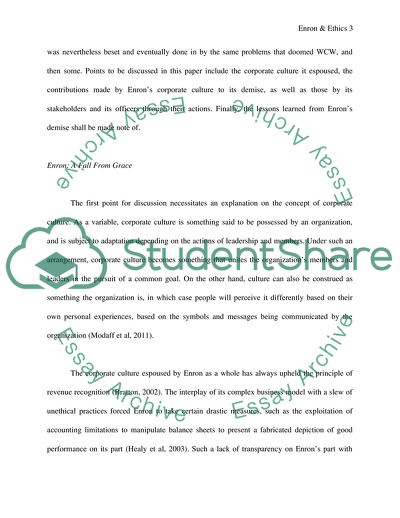Cite this document
(Ethics of Enron Company Case Study Example | Topics and Well Written Essays - 1500 words, n.d.)
Ethics of Enron Company Case Study Example | Topics and Well Written Essays - 1500 words. https://studentshare.org/ethics/1785122-ethics-enron
Ethics of Enron Company Case Study Example | Topics and Well Written Essays - 1500 words. https://studentshare.org/ethics/1785122-ethics-enron
(Ethics of Enron Company Case Study Example | Topics and Well Written Essays - 1500 Words)
Ethics of Enron Company Case Study Example | Topics and Well Written Essays - 1500 Words. https://studentshare.org/ethics/1785122-ethics-enron.
Ethics of Enron Company Case Study Example | Topics and Well Written Essays - 1500 Words. https://studentshare.org/ethics/1785122-ethics-enron.
“Ethics of Enron Company Case Study Example | Topics and Well Written Essays - 1500 Words”. https://studentshare.org/ethics/1785122-ethics-enron.


